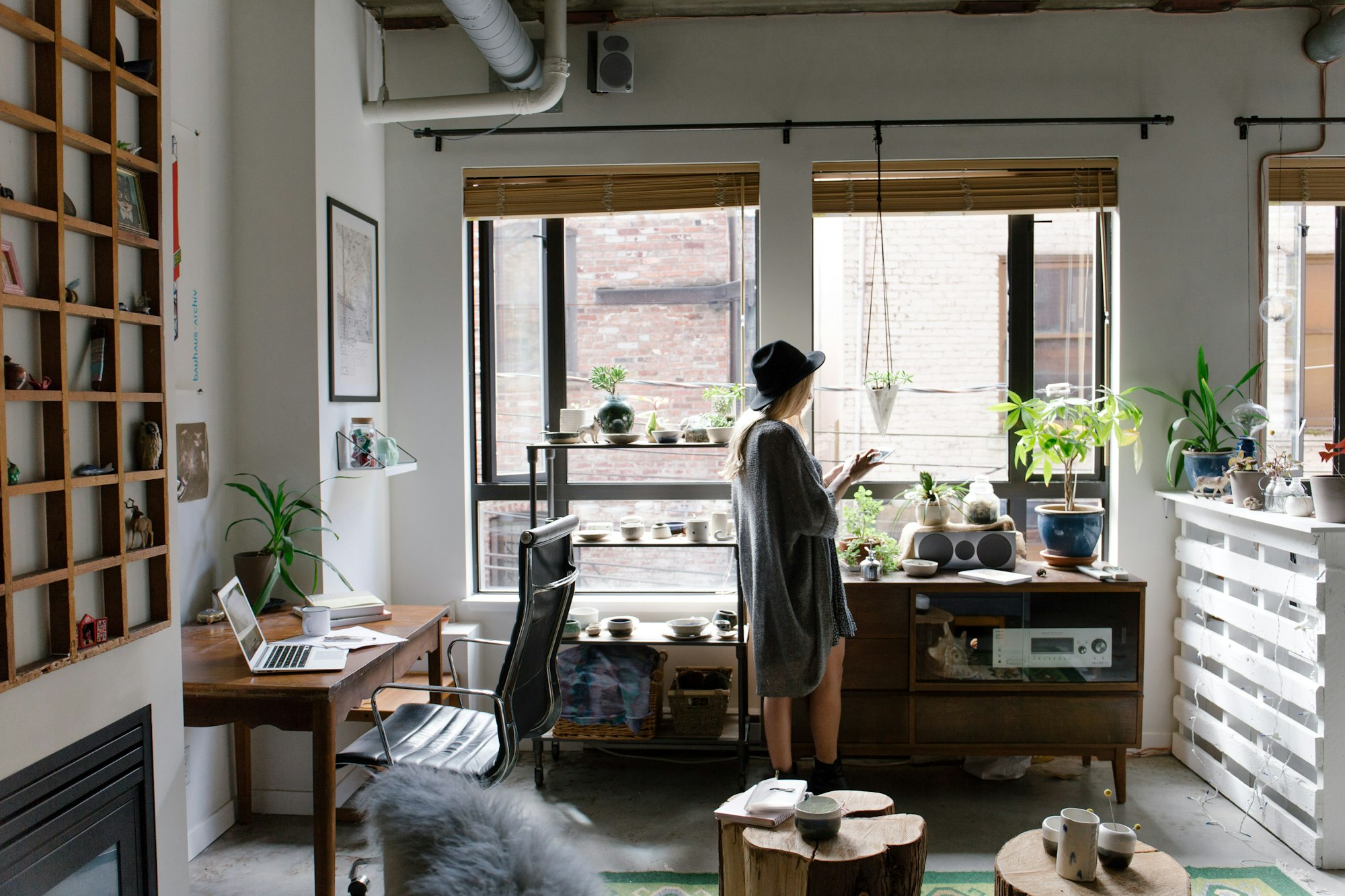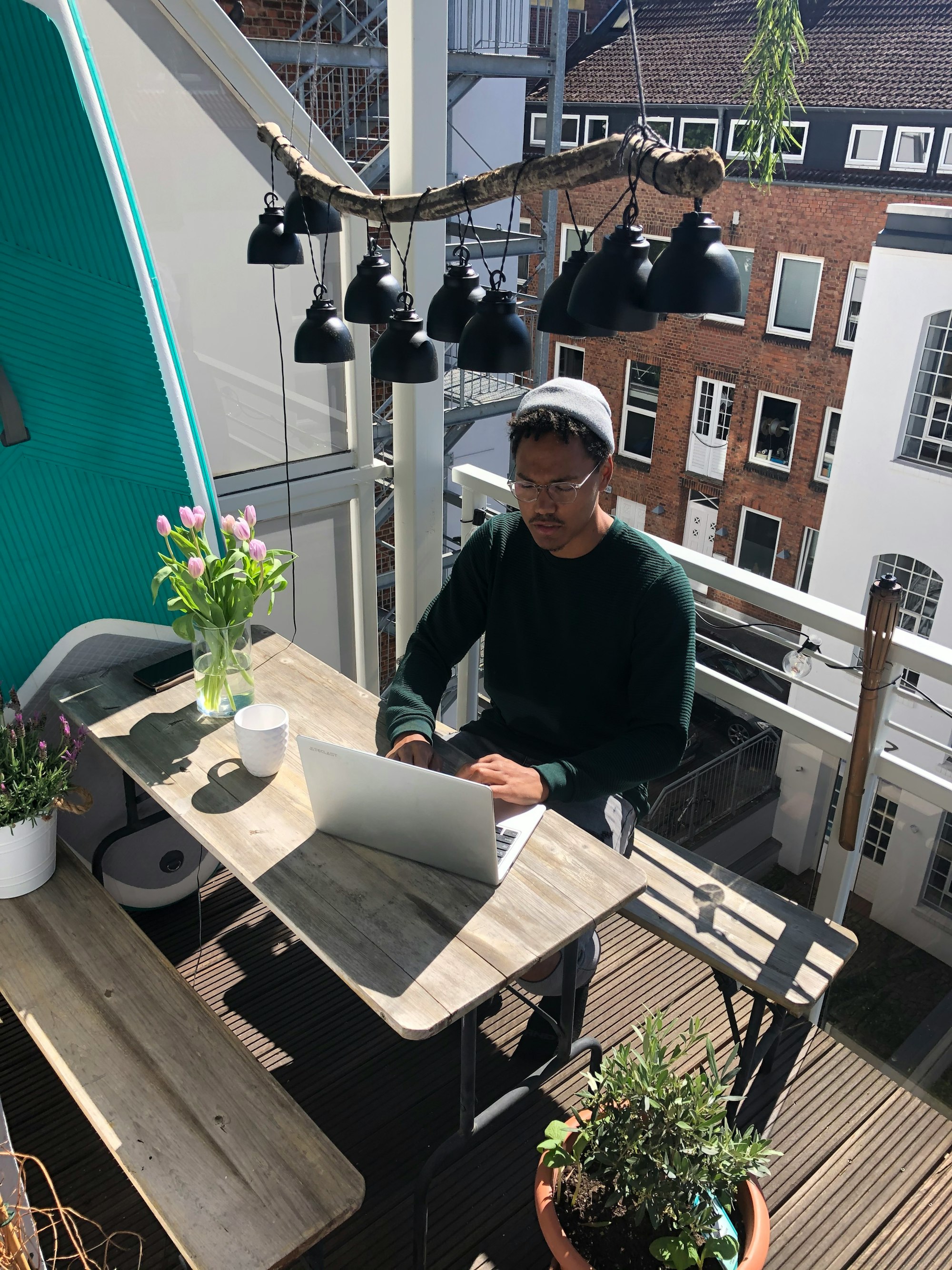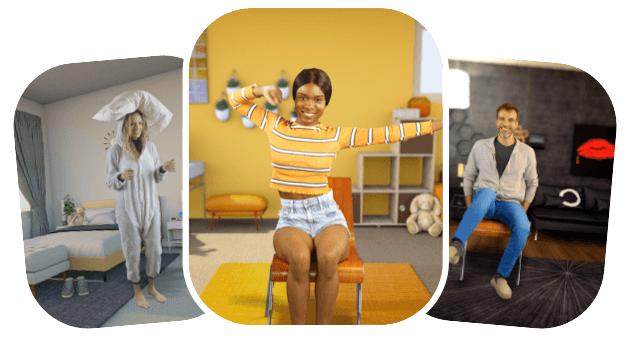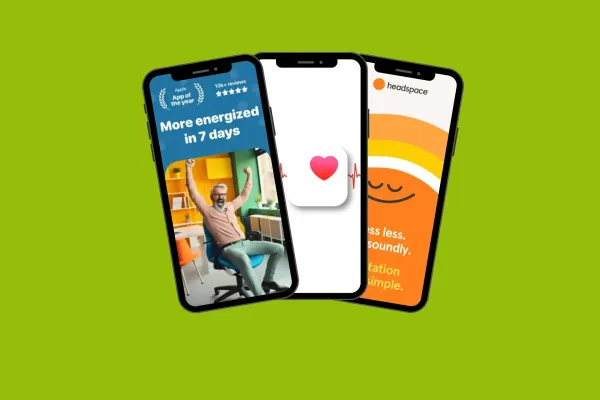The shift to remote or hybrid work arrangements has been jarring. It's been two years since the great remote-work shift happened. To many, it continues to be a challenge. At Wakeout, we've always been a 100% remote company. We'd like to share with you the tips we've found to enhance productivity, happiness and work-life balance.
It's about developing the proper mindset when working at home. The space we work in, whether it's on the kitchen table or on a dedicated workspace at home, is not as important as what happens inside that space between your ears.
Below, we've assembled 5 important paradigm shifts you must do in order to get the most out of our remote work experience.
From looking busy to looking like yourself

At home, there are no coworkers to impress with an outward appearance of business. We don't have to seem on the verge of the next great idea. We don't have to be in the zone at all times to keep people from interrupting us.
We are free to be ourselves, which means embracing the ebb and flow of energy levels. The reality is everyone's productivity cycles oscillate through the day and vary in intensity. That's something to be embraced. It's ok to fully embody your unique style of work and productive thought.
What does it mean to look like yourself?
- Listen and dance to music if that's your style
- Stand, walk around, dance, stretch, jump, do a Wakeout whenever you feel like it
- Mentally blocked? Lie down, take a break. Embrace this freedom.
From sitting all day to dancing, moving and standing

Being sedentary is an unfortunate symptom of many workplace cultures. It's not that we're forced to sit for long periods of time. But we want to look busy in the eyes of our peers, and being hunched over the keyboard broadcasts the busy look. If you're out and about, that empty chair can only mean one thing—you're slacking on the job!
At home, no such obligations bound you to a chair (as explained in the first point). You must shift your idea of work, from being a sedentary activity to an active one. Then you have to turn it into a new habit. The more you move, the better your mind performs. Creativity thrives in a well-oxygenated brain and no matter how busy you are, you can always sneak some physical activity into your tight schedule.
Stand up when pondering solutions. Clock your work intervals. Dance when you need a little boost - especially early in the morning. Take frequent movement breaks every hour to fend off burnout, work-related stress, and muscle aches. Your home office space is a sanctuary of productivity, but also of wellbeing. Make it so by adding movement into the mix.
From hours worked to tasks completed

At home, the hours you clock in at your desk are irrelevant. There are no "performance points" to be earned from being at your "station". The only thing that matters to your team is your output.
Your process is now invisible to coworkers. Working at home is now a purely productive endeavor, without the theatrics required to demonstrate effort. Focus on output, not hours worked.
If you're mentally blocked, take a break. If you're tired, stand up and walk around, or do a Wakeout.
At home, "working" doesn't mean sitting at your desk and looking the part. Working means advancing the completion of a specific task at its own pace, but within deadline.
From workplace to work space

Not working on-site means you don't have a physical barrier between work and life. Your "office" is now more of a mental state than a physical place. However, to turn on this "switch", your mind needs a little more than just walking from your bedroom to wherever you have your desk at home.
To enter this mode, you must develop what productivity hackers call the startup and shutdown ritual. A startup and shutdown ritual is a series of actions that clearly define when you've entered your mental work space, and when you close up shop. The more you stick to them, the stronger the mental barrier is formed between your work and life.
Here's a list of activities you could combine to create your own personal startup and shutdown rituals. This does not replace your morning routine or your wind down regimen. These are to be done right when you're about to start work, and when you're ready to call it a day:
Examples of startup and shutdown rituals
Startup ritual
- Write a short bulleted list of the previous day's accomplishments
- Plan your time blocks
- Do a 1-minute desk exercise
- Drink a large cup of water
- 1 minute of direct sunlight
- Check your calendar for meetings
- Set your iPhone on focus mode
- Close your eyes for 30 seconds and visualize yourself having a great day
Shutdown ritual
- Write a list of what you managed to accomplish today. This will give you a greater sense of satisfaction.
- Delegate uncompleted tasks to the day's ahead
- Write a list of challenges you faced
- Stretch your lower back, neck and shoulders
- Turn your mouse and keyboard off
- Plug in your devices that need recharging
- Shut down your computer and monitor
- Slide your chair under the desk to symbolize the end of work time
From being led to self-leadership

Freedom comes with great responsibility. It can be used for good or for mischief. It's the ultimate test of self-control, isn't it? How do people behave when no one's watching?
Self leadership is a learned behavior. It takes practice and time. Organizing your own tasks. Preparing your own reports. Understanding what needs to be done and when. And reaching out to teammates when the path ahead is unclear (instead of waiting to be asked how we're doing). It's an attitude of becoming the "first mover" in your work, instead of awaiting for orders.
Ultimately, once one gets into this mental state of self-leadership, the rewards are immense. From personal satisfaction, to an enhance feeling of competence. These things provide an increase sense of personal happiness which comes from knowing that we contribute.
We hope your work-from-home adventures are productive, healthy and rewarding! ⚡️
Part of the Healthy Workdays Wakeout series. Read more:

Wakeout











